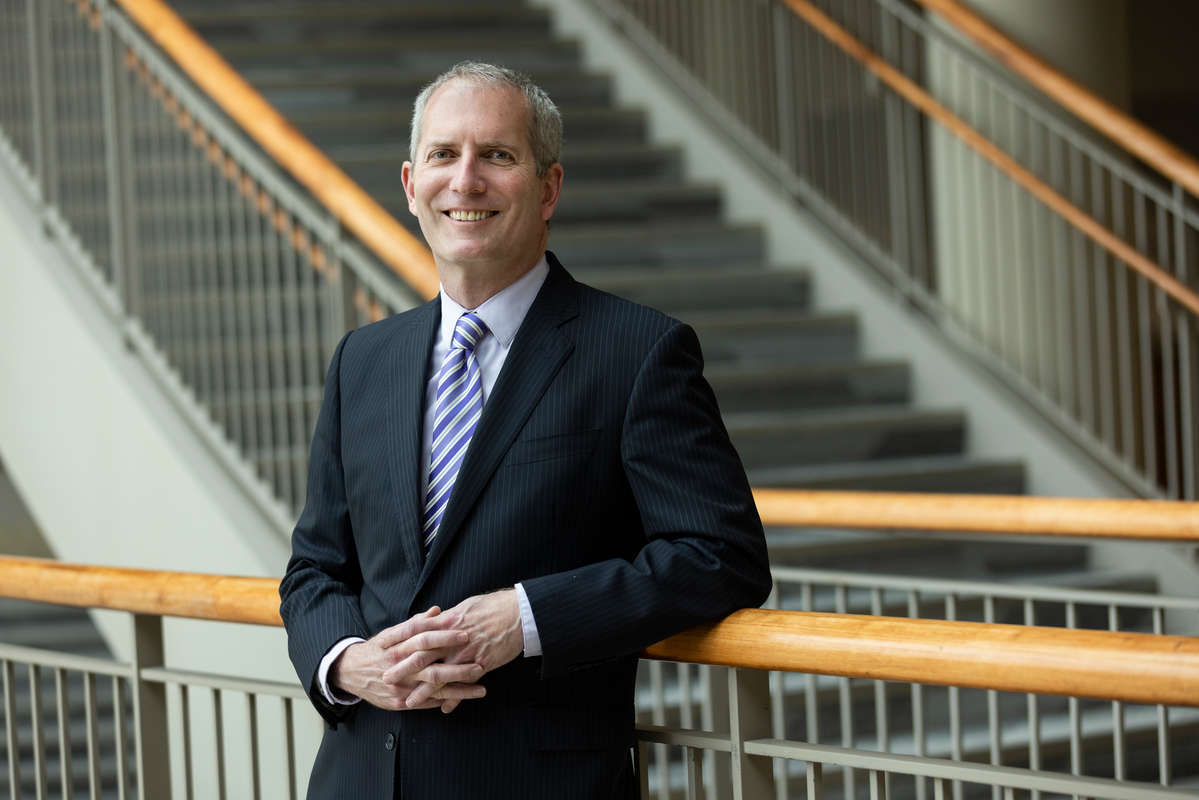This letter from School of Law Dean Robert Vischer ran in the summer 2021 issue of St. Thomas Lawyer.
At St. Thomas Law, we aim to meet the challenges of "life as it is" for generations to come.
After a 68-year hiatus, our law school reopened its doors in August 2001, confident in our mission but unsure of precisely how that mission would impact the world. A few weeks later, the attacks of 9/11 happened. That first semester looked different than anyone had imagined, but our mission mattered unmistakably in our community’s response to the nation’s pain.
Twenty years later, it’s easy to discern the many meaningful ways in which St. Thomas Law has contributed to the common good. It is perhaps fitting, though, that our anniversary as a law school comes during another period of acute pain. There has been no time to pat ourselves on the back for two decades of success – there is urgent work to be done navigating a global pandemic, responding to a deepening awareness of racial injustice, and looking to help mend an increasingly fractured society.
Over the past several weeks, I’ve been thinking a lot about a single phrase from Pope Francis’ most recent encyclical, Fratelli Tutti. He reminds us to “shoulder the inevitable responsibilities of life as it is.” Life as it is. Not as we wish it was, not as we hoped it would turn out – as it is.
There are many areas in which our community has brought a distinctive perspective to debates about the law and legal education, and they all reflect a commitment to meet the needs of a broken but hopeful world. For example, we have emerged as a leading voice for:
- Bringing mercy to criminal justice reform
- Showing how legal education can foster wellness
- Explaining why the political left and right should take religious liberty seriously
- Implementing restorative justice practices as a resource for the legal system
- Innovating access to justice strategies in the developing world
- Educating professionals who can strengthen the ethical cultures of organizations
- Serving the holistic needs of clinic clients, not just legal needs
- Establishing professional identity formation as a priority for law schools
- Demonstrating the relevance of Catholic social teaching to legal reform
It has never been clearer than it has been during this, our 20th year, that what we are doing as a law school community can, should and will have a meaningful impact on the world around us – now, and for generations to come. That impact is a function, though, of our willingness to look unflinchingly at, and respond courageously to, “life as it is.”
I am grateful for the many ways in which you help us do precisely that.







